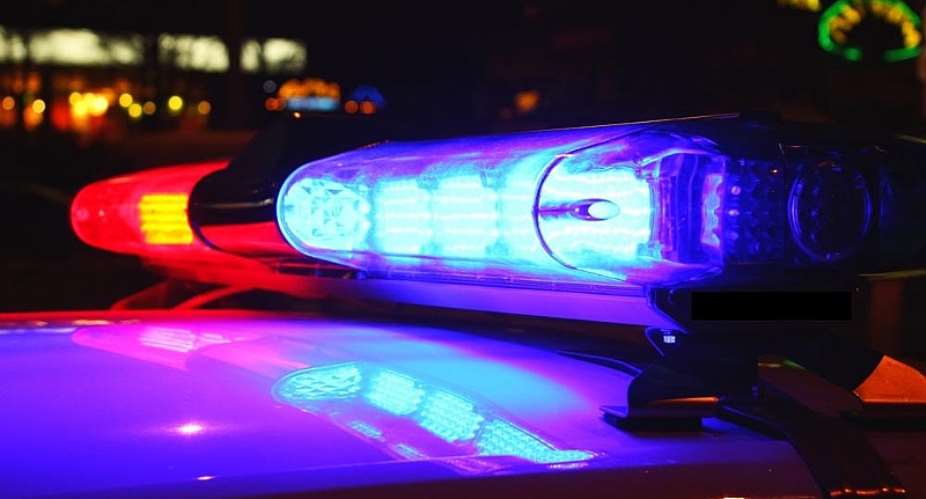A disturbing phenomenon of lawlessness on our roads, particularly in the cities and towns, has come to notice of The Chronicle, which cannot let it go without commenting with the hope of provoking the necessary action to curb it.
Tooting of sirens by vehicles permitted by law, and those without permission, are seen disturbing the peace of road users and pedestrians alike. This has become a common feature on our roads, especially during rush hour.
Generally, the siren is used to respond to emergencies. It is the standard rule to disregard the traffic laws while attending to emergencies, as a necessity.
Unfortunately, some drivers are cunningly using the 'siren privilege' to beat and disregard traffic rules contained in the Road Traffic Act 2004 (Act 683), which regulate traffic and road use in Ghana.
The Road Traffic Regulations Regulation 74(3) of L.I. 2180 of the Act provides that a siren may be fitted as a warning appliance and used on certain categories of motor vehicles. First, we have “the government vehicle used for official purposes by the Head of State.”
The second category is “a police vehicle”, the third category is “a motor vehicle used as an ambulance by a hospital or clinic.” The fourth category is “a motor vehicle used by other recognised government security agencies”, and the fifth category is “a bullion vehicle registered by the licensing authority.”
- I. 2180 also accords certain privileges to “Authorised Emergency Vehicles” when responding to emergency calls. According to the Legislative Instrument, a condition precedent for the exercise of these privileges by drivers of “authorised emergency vehicles” is the sounding of a siren and the flashing of emergency lamps whilst the vehicle is in motion.
“Authorised emergency vehicles” are interpreted as motor vehicles used by the Police Service, the Fire Service, used as an ambulance by a clinic/hospital, or one used by other government security agencies.
In summary, only drivers of vehicles that fall under the special categories mentioned above or “authorised emergency vehicles” are allowed to use sirens on roads in Ghana.
Even though hearses have the semblance of an ambulance, they cannot pass for an ambulance, because it meant for a different purpose of conveying the dead, while an ambulance conveys an injured or sick person.
From our observation, a number of high profile personalities, including government officials, members of Parliament (MPs), clergy, and heads of large corporate entities, drive round in private vehicles with sirens installed in them, mostly for the purpose of beating traffic.
Private vehicles, irrespective of who owns them, have had sirens installed in them, contrary to the requirement of the law.
So the law says if a car or vehicle does not fall in the stated categories, it does not qualify to use a siren. The law is, therefore, clear on vehicles that can have sirens installed in them, and those that cannot. It is as simple as ABC that it is unlawful to install a siren in them in the first place.
It, therefore, becomes an offence under the laws of Ghana to use a siren in such vehicles, which offence is punishable by a fine or a term of imprisonment.
The question is why drivers are driving around blasting sirens with impunity when they are not allowed to fix sirens in them.
Is it because personnel of the Motor Traffic and Transport Department (MTTD) of the Ghana Police Service responsible to enforce road regulations under the law are not sanctioning erring drivers?
The Chronicle believes it is high time the MTTD stops these acts of lawlessness on our roads with the seriousness they deserve.
The public must also be told and know that the siren privilege is not meant for all motorists, and that those who use it when they are not permitted to violate the Road Traffic regulation Sections 23 and 74(3) of LI 2180.
The Chronicle is drawing the attention of all motorists and the general public to the fact that there are existing laws regulating the use of sirens in the country. Let us obey them. If not, the law enforcing agents, MTTD particularly, and the police in general, must act to ensure sanity prevails on our roads.
The police should not relent in arresting and prosecuting all motorists who misuse sirens on the roads. It is a violation of the law.





 We’ll protect state wealth from opaque deals – Prof Jane Naana
We’ll protect state wealth from opaque deals – Prof Jane Naana
 Mauritania president says running for second term in June polls
Mauritania president says running for second term in June polls
 I won't ever say I was a mere driver’s mate' — Prof. Opoku-Agyemang
I won't ever say I was a mere driver’s mate' — Prof. Opoku-Agyemang
 2024 polls: 'EC struggling to defend credibility'— Prof. Opoku-Agyemang
2024 polls: 'EC struggling to defend credibility'— Prof. Opoku-Agyemang
 Akufo-Addo gov't's 'greed, unbridled arrogance, unrestrained impunity, sheer dis...
Akufo-Addo gov't's 'greed, unbridled arrogance, unrestrained impunity, sheer dis...
 Election 2024: Ghana needs an urgent reset, a leadership that is inspiring – Ma...
Election 2024: Ghana needs an urgent reset, a leadership that is inspiring – Ma...
 Partner NDC to rollout a future of limitless prospects – Prof Jane Naana Opoku-A...
Partner NDC to rollout a future of limitless prospects – Prof Jane Naana Opoku-A...
 NPP will remain in gov’t till Jesus comes — Diana Asamoah
NPP will remain in gov’t till Jesus comes — Diana Asamoah
 Sunyani Technical University demands apology from former SRC president over sex-...
Sunyani Technical University demands apology from former SRC president over sex-...
 'Dumsor' was resolved by Mahama but ‘incompetent' Akufo-Addo has destroyed the g...
'Dumsor' was resolved by Mahama but ‘incompetent' Akufo-Addo has destroyed the g...
